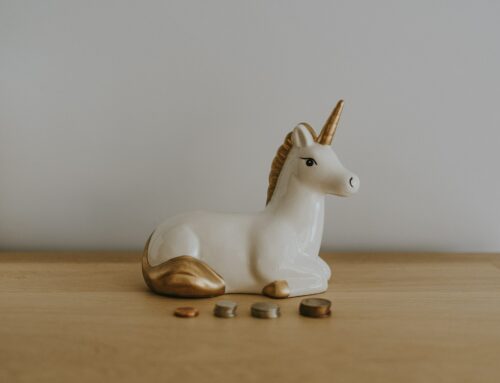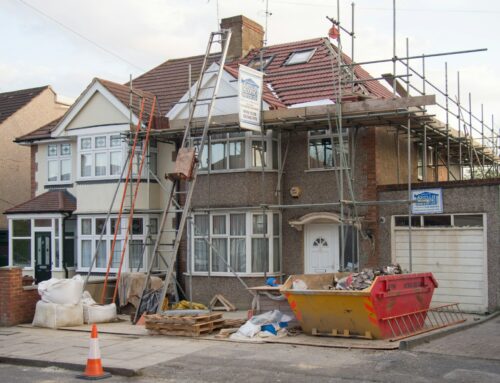As you know, HVAC companies are thriving as the industry continues to soar. Many private investment companies have consolidated small equity players, driving up the value of your companies. Additionally, most of us are unwilling to live without A/C and heat, so our need for your HVAC businesses isn’t dwindling.
This is good news if you’re nearing retirement and ready to slap a “for sale” sign on your HVAC business. When it comes time to pull the plug and open a new chapter, you will have no problem finding an interested buyer. Just educate yourself and do your due diligence to know what your business is worth. To get a fair payout, you need to know how much your HVAC business is worth, and that’s where a business valuation comes into play.
What is a Business Valuation?
A business valuation is a ballpark estimate of your business’s fair market value. There are several different methods to calculate your business’s worth. For small-scale businesses, a widespread approach is calculating a multiple on your earnings. Seller’s discretionary earnings (SDE) are for companies worth less than $10 million.
You base the SDE on your specific business, but the current market usually determines the multiple. Fortunately, there has been a rise in large buyers in the HVAC industry, driving the multiples up and leading to higher valuations for HVAC businesses.
Market Multiples
Using market multiples to value a business essentially provides a range representing what buyers would be willing to pay for your HVAC business. People often misinterpret a business valuation as the highest price you could get for your HVAC business or a price that would sell the business the fastest.
Those are both false. The business valuation represents what most buyers in the current market would pay. And, of course, the number could change from year to year based on the economy and the industry’s health.
Debt, profitability, and tangible assets affect your company’s worth. This is where a professional HVAC broker comes in handy. They will be able to give you an accurate estimate of what your business is worth, which will be a helpful guide in the selling process.
Here are four more factors that your HVAC business broker will consider when calculating your business’s current market value:
1. Your Business’s size
Size matters. A general rule of thumb is that the bigger the business, the more it’s worth. Of course, there are exceptions, but bigger HVAC businesses are generally worth more than small ones. This is a great starting point in determining the value of your business.
2. Location. Location. Location.
Like a home, location can undoubtedly affect the price of a company, but not because of visibility. Your business’s site affects the market you can serve in that area. A prime location in the middle of a hot, southern city will typically be worth more than one in a tiny town with temperate weather.
3. The Quality of the Equipment
How well-maintained and updated are your vehicles and equipment? If a handful of repairs and replacements are needed, that will reflect your overall valuation. Ask your broker if investing in repairs and replacements would be worth it before listing your business for sale.
4. The Financials
How well did your business do? Your financial history will make all the difference in calculating the value of your business. It’s pretty straightforward: strong financials equals a higher valuation, while weak financials means a lower valuation. HVAC business brokers know how to help you establish a valuation multiple.
What is Your HVAC Business Worth?
As mentioned earlier, a common approach for determining worth for small HVAC businesses is a multiple on SDE. The SDE is essentially the available assets beneficial to the owner or assets that an owner could reinvest into the business. A business owner often runs personal expenses through their business that count toward the SDE and “benefits” the owner, including:
- Family Healthcare
- Phone Bills
- Vehicle Purchases
- Utilities
- Marketing Materials
- Travel Expenses
To understand whether an expense is “discretionary” or not, ask yourself if a new buyer would need to continue paying it to generate revenue. Payments on a 2022 Mercedes that your wife drives? Nope, not a business need, so it is a discretionary expense. Bonuses and raises that employees have been receiving for the past ten years? Yep, this is needed to retain employees.
Here’s how to calculate the value of your HVAC business:
1. Calculate the SDE Over the Last Three Years
When calculating SDE, an appraiser will calculate the following:
- Income
- Depreciation
- Amortization
- Interest
- Owner Compensation
- Discretionary Expenses
Calculating SDE for the past three years is an excellent rule of thumb, giving you a weighted average.
2. Adjust the SDE for the Sale
After you’ve calculated SDE for each year, it’s time to adjust that number to represent the SDE the new owner will have. As previously mentioned, some standard adjustments include:
- Personal Vehicles: Remove any vehicle interest or insurance payments that run through the business for recent years.
- Family on Payroll: Do you have family members on the payroll that will leave once you sell the business? Make sure their work is reflected correctly in the SDE. Your son may receive full-time compensation but only works 10 hours weekly. In that case, you would want to remove his earnings from the expenses but add the amount you’d need to pay someone to cover those 10 hours per week.
- Rent: If you own the business property through another entity and don’t charge yourself rent, make sure to factor in what you would charge the new buyer for rent.
So far, you should have the SDE number and then adjust it for new buyers. Now it’s time to come up with estimated future earnings.
3. Calculate an SDE Weighted Average
Different brokers may calculate the fair average of SDE from the last few years a little differently. For a simple valuation, weigh the most recent year at 50%, the second year at 37.5%, and the third year at 12.5%.
Additional Factors that May Affect Your HVAC Business Valuation:
- Licensing
- Techs and Crew Members
- Owner Involvement
Three Ways to Maximize the Value of Your HVAC Business:
- Clean Up Your Books
- Retain Quality Techs with Low Turnover
- Focus on Service Repair and Replacement while Avoiding New Construction
If you’re ready to cool down and start planning to sell your business, knowing what it’s worth is half the battle. If you need a helping hand in selling your business, contact us today, and we’ll guide you through every step of the process.







